25 Important Questions to Ask Daycare Providers

This post may contain affiliate links. If you buy through the link, I may earn a commission. Learn More.
Picking a daycare takes a lot more work than choosing a name out of a hat.
You need to make sure the daycare is safe, responsible, and offers the services you need.
The following 25 questions are must-ask items for all daycares but feel free to add your own!
*FYI, some of the links in this article about questions to ask daycare may be affiliate links. If you click and make a purchase, we may get a commission (at no extra cost to you). For more info, please see our disclaimer.
25 Important Questions to Ask Daycare Providers
Do not feel shy about asking a lot of questions. Your daycare provider is both used to it and expecting them.
If the daycare provider does not wish to answer the questions or seems annoyed with you for asking them, that may be reason enough to look elsewhere.
After all, they are potentially caring for the most precious thing in the world: your child.
1. What Ages Do You Take?
This is the most basic question and a very important one. Don’t assume all daycare providers take children of all ages.
Many refuse newborns as they require too much direct care. Some will not accept children who aren’t potty trained.
Others have upper limits on the ages they will care for. Knowing first if your child is even allowed at the daycare will save you some time.
2. What Are Your Hours?

Another vital question. You need to know what hours you need for childcare services and then find out if the daycare facility you’re considering meets those needs.
Some daycares are half-days only. Some have strict eight-to-five policies.
Most are aware of workday hours and will allow early drop-offs and late pick-ups, but they might not be available as early or late as you need.
3. Do Children Need to be Potty Trained?
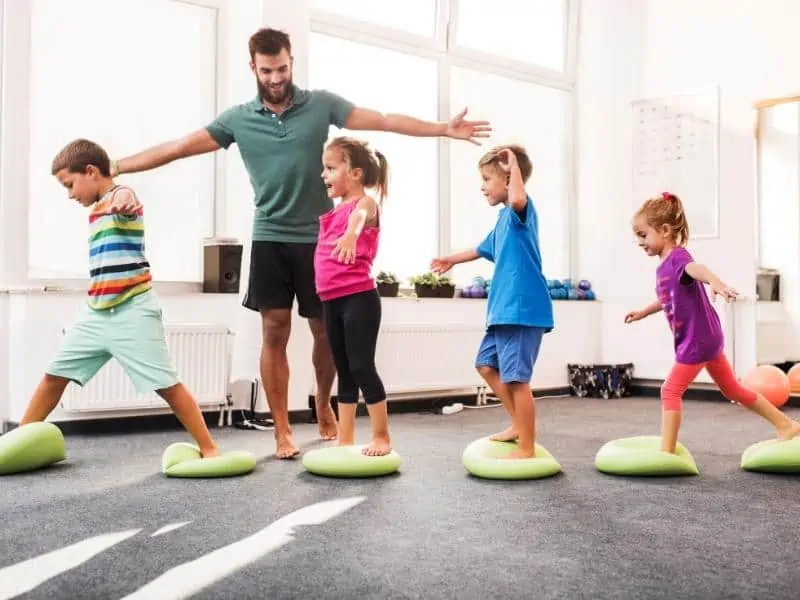
Some daycare providers will neither change diapers nor training pants. The nursery school my children attended had a policy such as this.
They were very clear that children needed to be fully potty trained or they were not welcome as their staff didn’t have the time to change diapers.
Many daycare facilities will change disposable diapers but will not change cloth ones.
4. How Do You Manage Nap Time?

Many families have their children on strict sleep schedules. This will change when you take your child to daycare.
Unless your children are being seen by a nanny or a private babysitter, they will be on the same nap schedule as the other children at the facility.
Find out what this naptime policy is and if it is enforced. Are children allowed to play if they don’t nap? Where do naps take place? All of these questions are important.
5. What Degrees and Certifications Do Staff Members Have?
What level of education is held by the staff? Are they certified child care workers? Are they CPR and First Aid certified? The answers to all of these questions should be yes at a reputable daycare facility.
6. Do We Need to Bring Our Own Diapers?
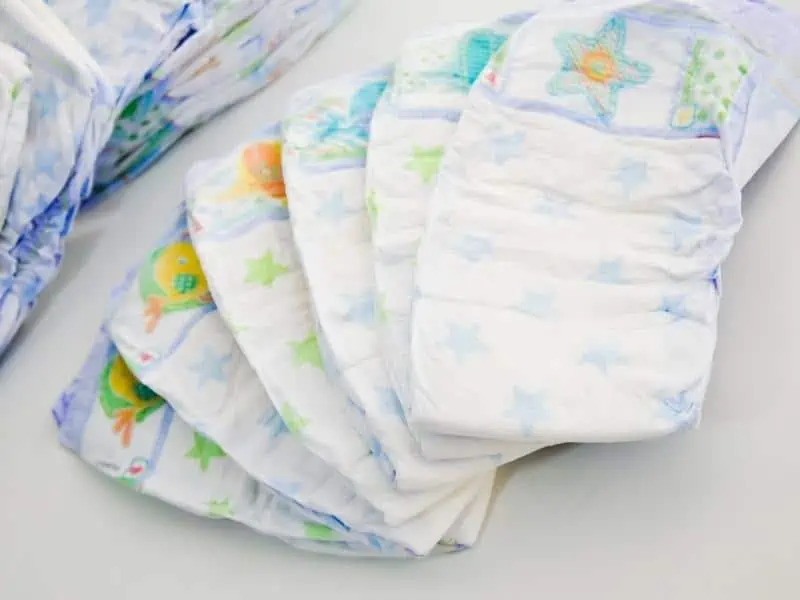
Usually the answer will be yes, but there are some daycare providers who take a different approach.
They might prefer to purchase bulk diapers to keep in stock for all of their babies. The cost will be included with your daycare fee.
Others might ask that parents bring in a box of diapers each month that will be used for all children.
7. Do We Need to Provide Food?
The daycare provider may wish to give the same snacks and meals to all of the children at the facility in order to keep the peace.
There may be one or more children with severe nut or wheat allergies that can be triggered by other kids snacking on items that contain those ingredients. This might also cause the daycare provider to choose to provide the food.
In many instances, the daycare will ask you to pack all food items for your child but you should expect to be told not to pack peanut butter and jelly if a child at the daycare has a nut allergy.
8. How Many Children Do You Care For?
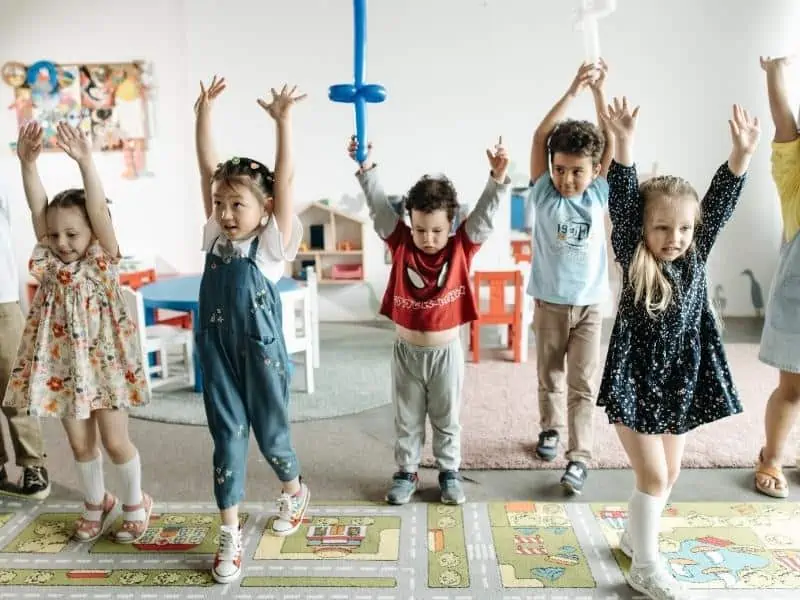
The number of children can make a huge difference. A large daycare with many children might not have the time you would like for them to devote to your child.
You also can’t assume that the size of the building means a smaller number of children. Many in-home daycares try to have the maximum number of children allowed by law regardless of the size of the home.
9. What is the Staff-to-Child Ratio?
Perhaps more important than the number of children is the staff-to-child ratio.
The smaller the ratio, the better care your child will receive. Generally speaking, you should look for one staff member with no more than four babies and no more than eight older children.
10. How Do You Manage Discipline?
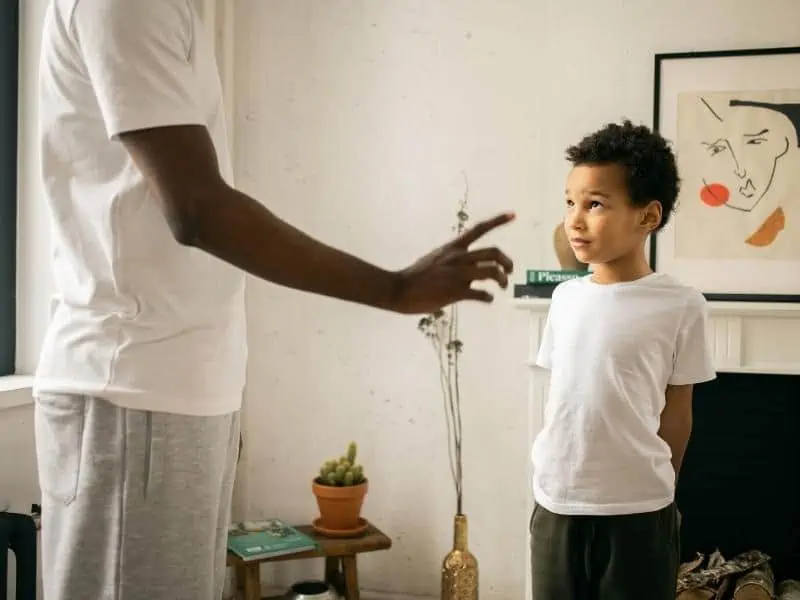
Children misbehave – even your children.
How does the daycare manage this misbehavior? Do they contact parents right away?
Are children given a chance to cool down? Are they immediately punished? Is there a point when a child is asked not to return if misbehavior continues?
What happens if your child is bitten or otherwise picked on by another child at the daycare? These are vital questions for situations you are bound to face at some point.
11. What Safety Precautions Do You Have for the Children?
Daycare businesses should have strict safety measures in place. Ask to see how the facility is childproofed to ensure safety at all times. This question is most important at in-home daycares.
Ask how children are kept away from places in the home that may not be safety proofed. You should also ask about any weapons in the home.
If the daycare provider has a firearm that is not very well secured, you should consider a different provider.
12. What Protocols are Followed for Outside Visitors?
Outside visitors should be mostly prohibited from the daycare facility. Unless they are custodial parents or have written permission from the parents to pick up a child, the visitor should not be on-site.
Ask the daycare facility how they protect the children from strangers. Look for cameras, locking exterior doors, keypad entries with codes that regularly change, and locked outdoor gates.
13. Do You Adapt to Special Needs?
This question is vital if you have a special needs child. Does the daycare adapt and how do they do so?
Special needs can refer to any number of conditions, so before you dismiss this, think about your child.
Do they have any allergies? That can be considered a special need. Do they have any mobility issues? This might also be a special need that must be discussed.
For example, my son has a sun allergy. The allergy isn’t life threatening but it is very uncomfortable for him. His nursery school needed to limit his direct exposure to the sun while playing outside.
Luckily, they were very willing to do so. Will your daycare similarly meet your child’s needs?
14. Do You Have a Learning Environment?
Is it a daycare, a nursery school, or a preschool?
If you are looking at a nursery school or a preschool, you should expect a full curriculum. A daycare may not offer any type of education.
Their goal should be to keep children safe, happy and healthy, which is often enough. However, some daycare providers do double duty as educators when the children are in their care.
I grew up in a home with an in-home daycare. My mother provided care to anywhere from three to five children at a time.
Part of her day was spent teaching even very young children how to read, write, tie their shoes, count and even tell time.
15. What Happens in Case of Emergency?

No one ever wants to think that an emergency could happen during daycare, but it can. You need to know that your provider is prepared.
Good daycare facilities will have a strategic plan in place that will involve calling either first responders or the parent, depending on the seriousness of the situation.
In my personal experience, my son broke his elbow. The caregiver called me, thinking it was just a sprain, and I immediately drove to pick him up.
As soon as I saw his elbow, I knew it was broken and drove him directly to the ER.
Would you want your daycare provider to do the same in that situation or would you prefer they call you while the ambulance is on its way?
16. Are You Closed for Holidays?
It is rare to find a daycare that doesn’t close for the holidays. You will need to find out which holidays they observe and how many days they are closed.
Some daycares close over the winter holidays and don’t open again until after the New Year.
They might stay open during some holidays but have abbreviated hours. Ask for a full schedule of days in which the daycare is closed.
PRO TIP
This is more important than you might think.
Some daycares follow a school schedule. That means that if the school district they’re in is closed, they will also be.
This is important because many times (minor holidays included) a daycare might be closed, but you’ll still have to go to work.
17. What is Your Severe Weather Policy?
Areas like mine that have severe weather often face closures. We have heavy snow and ice in the winter that shuts down schools, roads, businesses and, often, daycares for at least a few days.
In the summer, temperatures usually hit triple digits for about a week as well.
Daycares sometimes close when they cannot adequately cool their facility. Find out what your daycare does when Mother Nature is angry.
18. Can We Pause Our Contract for Vacations?

You might get lucky and find a daycare that only charges for the days you use. You probably won’t.
In order to keep your spot, you’ll almost always have to pay whether your child is at the facility or not.
If you decide to take an extended vacation, make sure your daycare costs are factored into your budgeting.
However, before you decide to do this, make sure your daycare requires it. They might have a vacation policy that allows you to pay a smaller amount while you’re away.
19. What is the Length and Scope of the Contract?
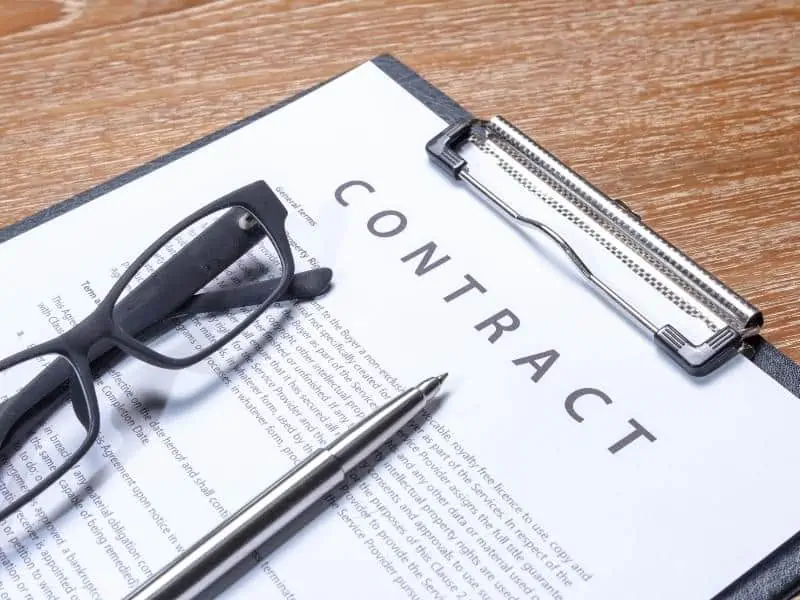
The contract will tell you how much you owe and how often you need to pay. Some daycares will let you pay yearly, monthly, or weekly. Others have stricter payment schedules.
You’ll also need to know how much the daycare costs, along with any hidden costs.
You will also need to ask about the length of the contract. Are you contracted for a month, six months or a year? What happens if you need to end your contract early?
The daycare may require that you pay for the duration of your contract. Most allow you to break your contract if you give a 30- or 60-day warning.
20. Do You Provide Before or After Hours Services?
I had long, late hours when I worked in an office. I usually arrived at work around 7 AM and sometimes worked until six or seven that night.
Finding childcare that was flexible enough to work around my schedule proved to be impossible, which is why I started working from home.
If your working schedule is anything like mine used to be, you’ll need to find a daycare provider who can work longer hours along with your schedule.
Keep in mind that daycares will charge extra for those additional hours. Likewise, you are unlikely to find an in-home daycare that has the flexibility for long hours on a regular basis.
21. How Much Outside Time Do the Children Receive?

Playtime is important for all children. Some might argue that outdoor playtime is the most important of all.
Fresh air and the joys of nature are vital to a child’s development. Does your daycare ensure children go outside every day? What do they do once they go outside?
Ask to see the outside play area and question how children are kept safe when playing outdoors.
22. How Often is the Facility Cleaned?
Cleanliness is very important in a daycare facility. Every child that enters the building brings germs with them.
The more often the facility is cleaned, the less likely kids will pick up nasty germs that will make them sick and possibly contagious.
The nursery school my children attended had a full-time custodian on staff who cleaned throughout the day, even sanitizing toys between uses.
My husband and I did the glove test on our first walkthrough and found no dust and no signs of dirt even on the windowsills and floorboards. You might not be as concerned about dirt as we were, but it is still important to ask.
23. Can I Stop in During the Day to Breastfeed?
This question will not apply to all parents. Even moms who are breastfeeding might prefer to pump during the day.
That said, you might find that your baby doesn’t eat well when fed from a bottle. You might also find that you don’t produce enough milk when you’re pumping.
Stopping in to nurse could be necessary for both of you. Ask the daycare if this is possible. In-home daycares usually have no problem with this.
Institutional daycares might not offer this option. They could feel that mom stopping in during the day is disruptive.
24. Do You Take Field Trips?

Before my first child was born, a local daycare made the news for going on a field trip and leaving a four-year-old behind.
The daycare never noticed his absence, which was only discovered when the child was seen walking along a busy road, trying to find his way home. This may have been an isolated incident, but it stuck with me.
If your chosen daycare does field trips, find out how they travel, how they track children and what safety measures they use.
You might also ask if parents can attend with their children, which is what I did. Not only was I assured that my children were safe, but I also built some fun memories.
25. How Long is Your Wait List?
This is a big one. The best daycares tend to have very long wait lists.
When my son was born, my husband and I carefully surveyed as many daycares and nursery schools as we could realistically visit. We found that most daycares in our community had a 12 to 18 month waitlist.
The nursery schools, which didn’t take children until they were three, had much longer lists.
Indeed, most moms put their children’s names on the wait lists while they were pregnant. I felt lucky that my son made it into our first-choice nursery school, which had a three-year wait list.
I put my daughter on the list with the same facility the day after our 20-week ultrasound.
It’s likely that the daycare you are visiting will have told you upfront if they have no openings in the foreseeable future, but it is also vital that you know for certain yourself.
Furthermore, you should find out if there is a charge to hold a spot for your child. We had to pay a non-returnable fee equal to the first month of childcare for each waitlist spot.
It was worth it to us but it might not be to you. Only you and your partner can decide.
Key Takeaways
It’s not easy to choose a daycare. Asking the right questions can help you weed out the daycares that won’t work for you and narrow down your options.
Do you have any questions that aren’t listed here? Tell us in the comments!
